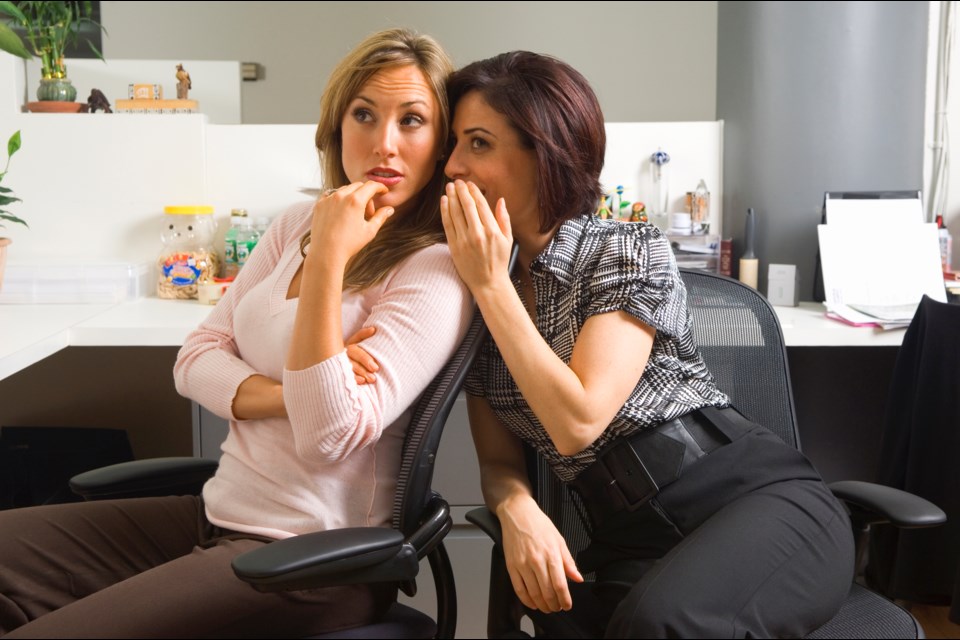Dear Ellie: Why do some women, despite being successful achievers, still behave like the “mean girls” they were back in high school?
I’ve known some women who fit that description. Several of them head their own businesses. I’m well-established in my profession, but not an owner.
I’ve felt that “mean streak” when friends who could be very friendly at times, would ignore me at a social gathering, sticking close to some more favoured friends.
They could also “forget” to pass on important information to me, e.g., affecting access to special virtual information lectures during Covid’s early, confusing days.
Or, they’d organize a ZOOM get-together with their other “special” friends, or each other, and again, I’d hear they “forgot” to include me.
I’m divorced, 42, and on my own. Years ago, I saw this streak of meanness among some middle-to high-school “besties” including these I’ve mentioned.
Three years ago, one became much closer to me during my divorce, interested in every detail, which I thought was “caring” on her part. She was then in her late-30s. She invited me to join her at a fitness class twice a week and even paid my way for the first session to entice me.
But, from the start, she’d gravitate to her fitness buddies, gave one brief introduction, and ignored me to go off to lunch with some others. She didn’t bother explaining why she disappeared so quickly.
There are times I still can enjoy the company of these otherwise interesting women. But lately, I just feel hurt and avoid them.
How should I handle this going forward?
Adult “Mean Girls”
Take a healthy break from the women who’ve been mean as adults. They know better, but apparently care less.
So, introduce thoughtful self-care and self-protection to your personal life. If you find it necessary to be in the company of such women, remind yourself that day of your own decency and integrity.
In a group, focus a while on new people, rather than stick with those who are problematic for you. If involved with just one of these women, protect your private information (they already know enough about you), and turn the conversation toward a particular issue of interest to you.
These steps, practiced whenever confronted with other people’s negative behaviour towards you, are a shield that separates you emotionally from feeling hurt.
You then remain the strong person, while, for reasons we don’t know, they reveal their weakness of character.
Dear Ellie: My cousin overseas has an adopted teenaged daughter who keeps harming herself. She’s severely manic-depressive and suicidal.
I promised her pre-COVID that if she finished school, stopped acting out, fighting and harming herself, she could visit Toronto.
Her mother wants her daughter to come here now, while she vacations in Spain. (They need a break from each other).
My parents were abusive, and my mother committed suicide, so I know the signs.
Besides locking up my medications and anything she could harm herself with, I intend on making her earn a visit to Niagara Falls by painting her bedroom and cleaning out the garage over two weeks here.
Any Advice?
I published this letter so that some psychiatrists, psychotherapists or suicide-prevention professionals will respond.
Your plan worries me. This very disturbed girl who would live with you in a different locale for two weeks, has little basis for trusting you.
While tasks with rewards may be helpful, the displacement plus your demands could risk putting her over the edge. I urge you to first seek professional advice.
FEEDBACK: Another look at the husband whose wife feels “sexually rejected” by him (March 11):
Reader: “Her husband who’s no longer interested in sex could simply have never been interested in sex because he’s asexual.
“It’s possible (along with several other possibilities) that he formerly followed society’s masculine sexual script. But now, for whatever reason, he doesn’t anymore.
“Ignoring the issue of sexual orientation (which asexuality is) could lead this couple to miss the key to understanding their relationship.”
Ellie: The website for “The Asexual Visibility and Education Network” (AVEN) strives “to create open, honest discussion about asexuality among sexual and asexual people alike.
“Unlike celibacy, which is a choice to abstain from sexual activity, asexuality is an intrinsic part of who we are, just like other sexual orientations.
“Asexual people have the same emotional needs as everybody else and are just as capable of forming intimate relationships.”
Ellie’s tip of the day
Mean Girls was a 2004 movie. In 2020, no one should tolerate a “friend’s” repeated meanness.
Send relationship questions to [email protected].




